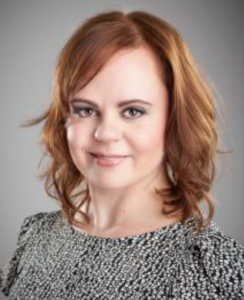Jiletta L Kubena, MA, PhD
Assistant Professor of Criminology and Criminal Justice
Director of the Criminology and Criminal Justice Program
Our Lady of the Lake University
How did you become interested in the field of women and/or gender and crime?
After I graduated with my bachelor’s, I worked as a program director for a nonprofit that served at risk teenagers. The girls we worked with struggled with problems that were distinctly different from the boys. When I started graduate school, I examined differences between boys and girls in offending and victimization, and learned how different girls and boys’ experiences are in the criminal justice system and in their families and schools. I also researched which theories best applied to differences in male and female behavior.
My dissertation focused on integrating theories to understand how juvenile offending patterns correlated with school, family, and friend relationships. Specifically, how male and female experiences differ, and how they have changed over three decades.
How do you define yourself as a scholar/activist/educator?
I am all three, and I am lucky because they coexist so well with the mission of my university. I have been a professor at Our Lady of the Lake University, a Catholic liberal arts university, for the past six years. During this time, I continue to grow in my commitment to the university’s mission of service and social justice through my research and teaching of feminist scholarship.
Currently, I am the board chair for the San Antonio Rape Crisis Center. In addition to serving on the board for the past four years, I have also conducted evaluation research and brought my students to the work the center does in the community.
One of my ongoing goals is to connect the work going on in the criminal justice community, especially at the local and state level, with my research and teaching. This has led to many research collaborations with criminal justice and community leaders and to me meeting my husband, an assistant district attorney.
What are your current projects or interests?
Currently I am working on how faith and spirituality differ between males and females in recovering from addiction. I collected data for two years from faith-based groups that facilitate recovery retreats for men and women. My initial findings point to marked differences in how men and women view religion and a higher being in terms of their recovery.
In my work on juveniles, I have recently been focusing on the increased use of police in schools. I have specifically been examining juveniles’ rights in interrogations and searches and seizures by school resource officers and school resource officer training. Very little evaluation research has been conducted in this area, yet most schools in the United States employ at least one resource officer.
Who is your favorite person (or animal!) to spend time with, and what are your favorite things to do when you are with them?
I grew up on a farm, and one of my favorite things to do is go home to see my parents and work on the farm. My favorite people are my dogs, Mac and Mia, and my husband, Kanon. One of my favorite things is spending what I call in “between time” doing mundane life things with my husband, like cooking breakfast and shopping. We also both like to garden and landscape, so we are always busy with new projects in our yard. Traveling to new places every few months and taking my dogs hiking and swimming at the lake near our house are also my favorite ways to spend time.
How do you wind down after a stressful day?
Because I grew up on a farm, I love to be outside, so every night I walk my dogs at a park near my house. I prefer walking at night when it feels like it is just the three of us. Walking with my dogs helps me to refocus my thoughts and energy and decompress. Spending time alone is one of the best ways I destress, but I also work out and practice yoga a few times a week. Being able to instantly download books and stream television is also very soothing after a stressful day.
What obstacles do you feel you have overcome to be where you are today?
I grew up in a very small town, with the closest shopping mall two hours away. I was not a great student in high school and was labeled as too bossy. I knew that I wanted to work in the field of criminology and criminal justice, but I did not have any mentors. Going to graduate school after working in the field for four years was very hard, but I learned that “bossiness” is a great trait! It gives me a voice in the classroom and in presenting research. Learning how to ask for help (which is very hard for me) and how to communicate well (I am secretly very shy) are also obstacles that I continue to work to overcome.
What would you like to be remembered for?
That I truly care for people in my community and beyond, and the work I do as a professor changes my students’ lives and those they serve after graduation.
What is one of your lifelong goals?
I want to continue the work I do and write a book on gender differences, focusing on school experiences and delinquency.
What are one or two of your publications that you feel best represent your work?
My recent publication on school resource officers entitled The Evolution of Securing the American K-12 Educational Environment with Armed Police Officers is being published in 2016 in the book Critical Examinations of School Violence and Disturbance in K-12 Education, Gordon A. Crews, IGI Global.

